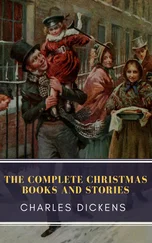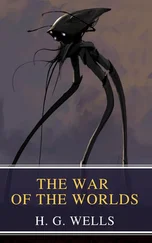[A dance.]
The iron tongue of midnight hath told twelve.
Lovers, to bed, ’tis almost fairy time.
I fear we shall outsleep the coming morn
As much as we this night have overwatch’d.
This palpable-gross play hath well beguil’d
The heavy gait of night. Sweet friends, to bed.
A fortnight hold we this solemnity,
In nightly revels and new jollity.
Exeunt.
Enter Puck.
Puck.
Now the hungry [lion] roars,
And the wolf [behowls] the moon;
Whilst the heavy ploughman snores,
All with weary task foredone.
Now the wasted brands do glow,
Whilst the screech-owl, screeching loud,
Puts the wretch that lies in woe
In remembrance of a shroud.
Now it is the time of night
That the graves, all gaping wide,
Every one lets forth his sprite,
In the church-way paths to glide.
And we fairies, that do run
By the triple Hecat’s team
From the presence of the sun,
Following darkness like a dream,
Now are frolic. Not a mouse
Shall disturb this hallowed house.
I am sent with broom before,
To sweep the dust behind the door.
Enter King and Queen of Fairies [Oberon and Titania] with all their Train.
Obe.
Through the house give glimmering light
By the dead and drowsy fire,
Every elf and fairy sprite
Hop as light as bird from brier,
And this ditty, after me,
Sing, and dance it trippingly.
Tita.
First, rehearse your song by rote,
To each word a warbling note.
Hand in hand, with fairy grace,
Will we sing, and bless this place.
[Song and dance.]
Obe.
Now, until the break of day,
Through this house each fairy stray.
To the best bride-bed will we,
Which by us shall blessed be;
And the issue, there create,
Ever shall be fortunate.
So shall all the couples three
Ever true in loving be;
And the blots of Nature’s hand
Shall not in their issue stand;
Never mole, hare-lip, nor scar,
Nor mark prodigious, such as are
Despised in nativity,
Shall upon their children be.
With this field-dew consecrate,
Every fairy take his gait,
And each several chamber bless,
Through this palace, with sweet peace,
And the owner of it blest
Ever shall in safety rest.
Trip away; make no stay;
Meet me all by break of day.
Exeunt [Oberon, Titania, and Train].
Puck.
If we shadows have offended,
Think but this, and all is mended,
That you have but slumb’red here
While these visions did appear.
And this weak and idle theme,
No more yielding but a dream,
Gentles, do not reprehend.
If you pardon, we will mend.
And, as I am an honest Puck,
If we have unearned luck
Now to scape the serpent’s tongue,
We will make amends ere long;
Else the Puck a liar call.
So, good night unto you all.
Give me your hands, if we be friends,
And Robin shall restore amends.
[Exit.]
¶
William Shakespeare
( 1596–1597 )
Quarto, 1600; First Folio, 1623.
merchant
¶
Act I
Sc. I Sc. II Sc. III
Act II
Sc. I Sc. II Sc. III Sc. IV Sc. V Sc. VI Sc. VII Sc. VIII Sc. IX
Act III
Sc. I Sc. II Sc. III Sc. IV Sc. V
Act IV
Sc. I Sc. II
Act V
Sc. I
[Dramatis Personae
The Duke of Venice
The Prince of Morocco ,
The Prince of Arragon , suitors to Portia
Antonio , a merchant of Venice
Bassanio , his friend, suitor to Portia
Solanio ,
Gratiano ,
Salerio , friends to Antonio and Bassanio
Lorenzo , in love with Jessica
Shylock , a rich Jew
Tubal , a Jew, his friend
Launcelot Gobbo , a clown, servant to Shylock
Old Gobbo , father to Launcelot
Leonardo , servant to Bassanio
Balthazar ,
Stephano , servants to Portia
–––––
Portia , a rich heiress, of Belmont
Nerissa , her waiting-gentlewoman
Jessica , daughter to Shylock
–––––
Magnificoes of Venice, Officers of the Court of Justice, Jailer, Servants to Portia, and other Attendants
Scene: Partly at Venice and partly at Belmont , the seat of Portia]
Enter Antonio, Salerio, and Solanio.
Ant.
In sooth, I know not why I am so sad;
It wearies me, you say it wearies you;
But how I caught it, found it, or came by it,
What stuff ’tis made of, whereof it is born,
I am to learn;
And such a want-wit sadness makes of me,
That I have much ado to know myself.
Sal.
Your mind is tossing on the ocean,
There where your argosies with portly sail
Like signiors and rich burghers on the flood,
Or as it were the pageants of the sea,
Do overpeer the petty traffickers
That cur’sy to them, do them reverence,
As they fly by them with their woven wings.
Sol.
Believe me, sir, had I such venture forth,
The better part of my affections would
Be with my hopes abroad. I should be still
Plucking the grass to know where sits the wind,
Piring in maps for ports and piers and roads;
And every object that might make me fear
Misfortune to my ventures, out of doubt
Would make me sad.
Sal.
My wind cooling my broth
Would blow me to an ague when I thought
What harm a wind too great might do at sea.
I should not see the sandy hour-glass run
But I should think of shallows and of flats,
And see my wealthy Andrew [dock’d] in sand,
Vailing her high top lower than her ribs
To kiss her burial. Should I go to church
And see the holy edifice of stone,
And not bethink me straight of dangerous rocks,
Which touching but my gentle vessel’s side
Would scatter all her spices on the stream,
Enrobe the roaring waters with my silks,
And in a word, but even now worth this,
And now worth nothing? Shall I have the thought
To think on this, and shall I lack the thought
That such a thing bechanc’d would make me sad?
But tell not me; I know Antonio
Is sad to think upon his merchandise.
Ant.
Believe me, no. I thank my fortune for it,
My ventures are not in one bottom trusted,
Nor to one place; nor is my whole estate
Upon the fortune of this present year:
Therefore my merchandise makes me not sad.
Sol.
Why then you are in love.
Ant.
Fie, fie!
Sol.
Not in love neither? Then let us say you are sad
Because you are not merry; and ’twere as easy
For you to laugh and leap, and say you are merry
Because you are not sad. Now by two-headed Janus,
Nature hath fram’d strange fellows in her time:
Some that will evermore peep through their eyes,
And laugh like parrots at a bagpiper;
And other of such vinegar aspect
That they’ll not show their teeth in way of smile
Though Nestor swear the jest be laughable.
Enter Bassanio, Lorenzo, and Gratiano.
Here comes Bassanio, your most noble kinsman,
Gratiano, and Lorenzo. Fare ye well,
We leave you now with better company.
Sal.
I would have stay’d till I had made you merry,
Читать дальше












![Уильям Шекспир - The Works of William Shakespeare [Cambridge Edition] [Vol. 1 of 9]](/books/746589/uilyam-shekspir-the-works-of-william-shakespeare-c-thumb.webp)